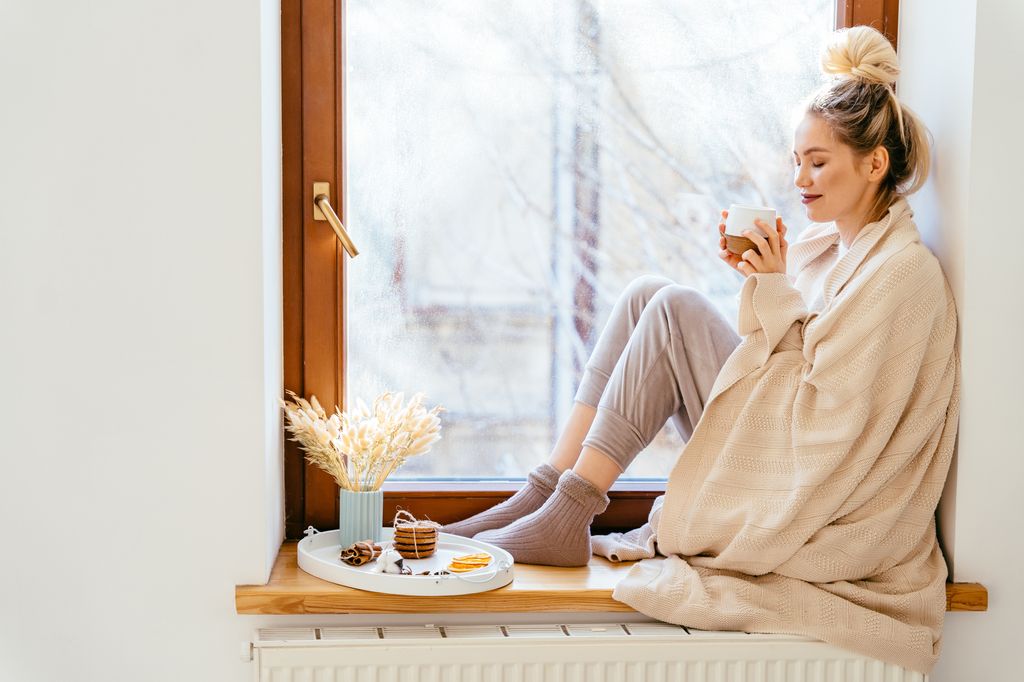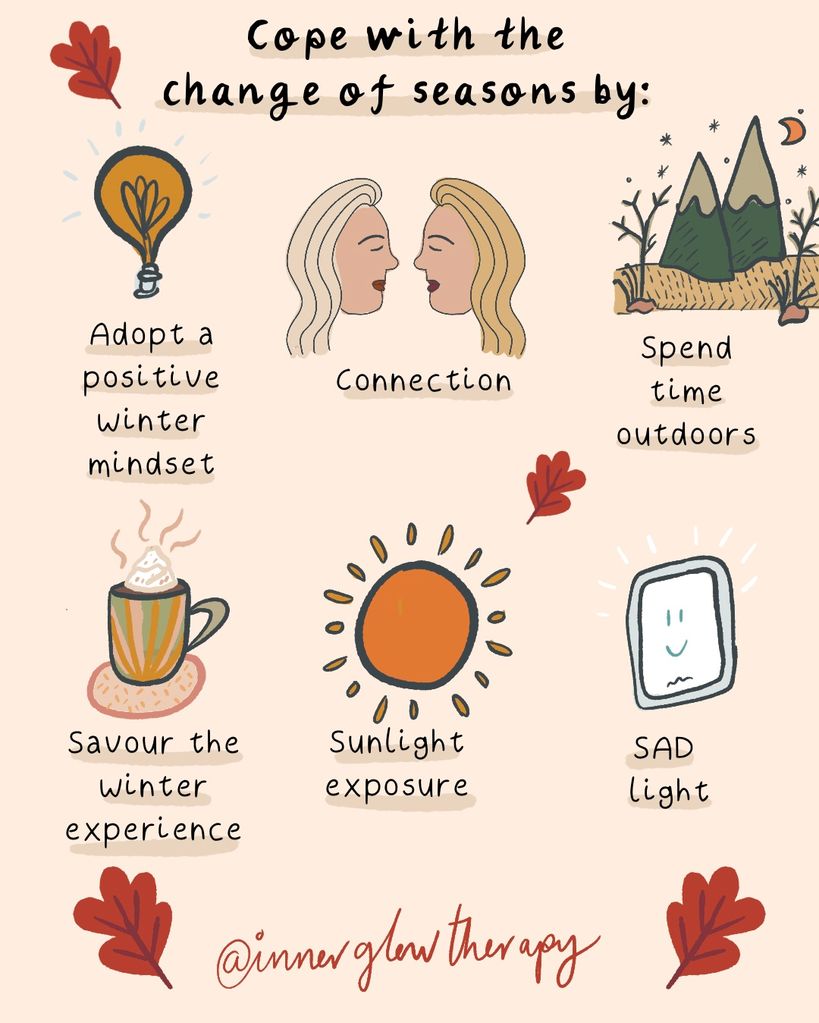A week has passed since the clock change, and while brighter mornings are nice (nobody likes waking up in the dark), have you seen the impact of less time to soak up the daylight?
As winter draws in, bringing colder temperatures and less opportunity to feel the sun on your face, many of us experience a dulling down of our mood. We might dread getting out of bed on frosty mornings or feel more sluggish than usual.
Scientists haven't worked out a firm reason for many of us struggling with the winter months, but there are theories that the lack of sunlight impacts our circadian rhythm, the body's internal clock and this results in an overproduction of melatonin (the sleep hormone), meaning lower energy levels and feeling tired. As well as decreasing serotonin levels, our happy hormone, lowering our mood.
Why do we feel sad in winter?
1. The winter mindset
We tend to hold negative connotations in our mind of winter and darkness as being bad (think – Jon Snow and 'winter is coming'), and summer and lightness as being good.
Scientists believe that our 'winter mindset,' which is a collection of thoughts, beliefs and expectations that we hold about winter may hold a clue to the impact that winter has on wellbeing.
When we see winter as a threat, and a time that we detest, we hold a negative wintertime mindset. This makes you see winter through a perspective of doom and gloom, meaning you are more likely to fuse with the negatives, which has an impact on your mood.
2. Motivation dwindles in winter
When we feel tired and low in mood, this can impact motivation to do things aligned with our goals and values (e.g. going to the gym or making that seven pm yoga class), we might eat more junk food than usual to boost energy and we might disconnect from friends and family.
DISCOVER: Why do I feel happy doing nothing? Experts explain
Connection, exercise, diet and sleep are the key pillars of positive mental health, and these are all things that can be impacted during the winter.
Waking up when it’s pitch-black outside, is a challenge for me. I want to stay under the warmth of the blankets and dread stepping out into a cold house. Whereas in the summer being woken by natural sunlight, gives me a charge of energy.
How to stay happy in winter
The UK dreads winter, but it's not the case everywhere. Other countries look forward to the winter months and don’t seem to be impacted as much by the long winters and lack of daylight.
In Tromso, Norway, they experience the 'Polar Night' where the sun does not rise from November to January. However, a recent study in Tromso found that there was no link between poor mental health and the lack of daylight.
In the UK, however, many of us do struggle with the change in seasons, and some even go on to develop Seasonal Affective Disorder (SAD), experiencing symptoms such as low mood, lack of motivation and tiredness.
So, what can we learn from Nordic countries in terms of remaining upbeat during the darker months?
1. Reframe winter
If we see winter as a time to enjoy and look forward to, we hold a positive wintertime mindset. The positive associations we hold to winter, such as enjoying cosy times by the fire or taking time to watch the snow fall in your garden, let in glimmers of light in an otherwise dark time.
In Nordic countries, they tend to hold a positive winter mindset, they look forward to the wintertime and perhaps this is one of the reasons why they don’t seem to be impacted to the same degree by the winter blues.
You too can practice shifting your mindset, by placing your mind’s spotlight on what brings you pleasure about winter and seeking out these experiences. As opposed to ruminating on the negatives.
2. Savour the winter experience
Many Nordic countries embrace seasonal rituals: in Denmark they integrate 'hygge' the practice of savouring the small moments, like enjoying a warm cup of tea by the fire or snuggling under a thick, cozy blanket.
Savouring is where we appreciate positive experiences, and this enhances pleasant emotions, as well as boosting our resilience to managing stressful experiences.
When you intentionally savour winter experiences such as connecting with your friends by a bonfire or catching the last of the sunlight on a frosty afternoon, this acts as a mood booster, by amplifying the positives within this experience.
READ: How to be happy: 30 expert-approved tips to become your most optimistic self
3. Spend time outdoors
In the winter, there can be a strong pull to stay indoors, we might detest the cold weather. However, time outside in nature has a very positive impact on mood. Even just two hours spent a week in nature, has been found to have a positive impact on your mental health.
Try and find a balance between spending cosy, replenishing time hibernating indoors, along with time outdoors, whether it’s light or dark. Just taking in the fresh air or moving your body in ways that feel good can lift your mood.
4. Let the light in
Sunlight is a mood booster, as it impacts levels of serotonin and melatonin. Make time to be outdoors during daylight hours to access some much-needed vitamin D. We know that those depleted in vitamin D are more susceptible to struggling with low mood. You can also take a vitamin D supplement or try a SAD lamp that replicates sunlight.











